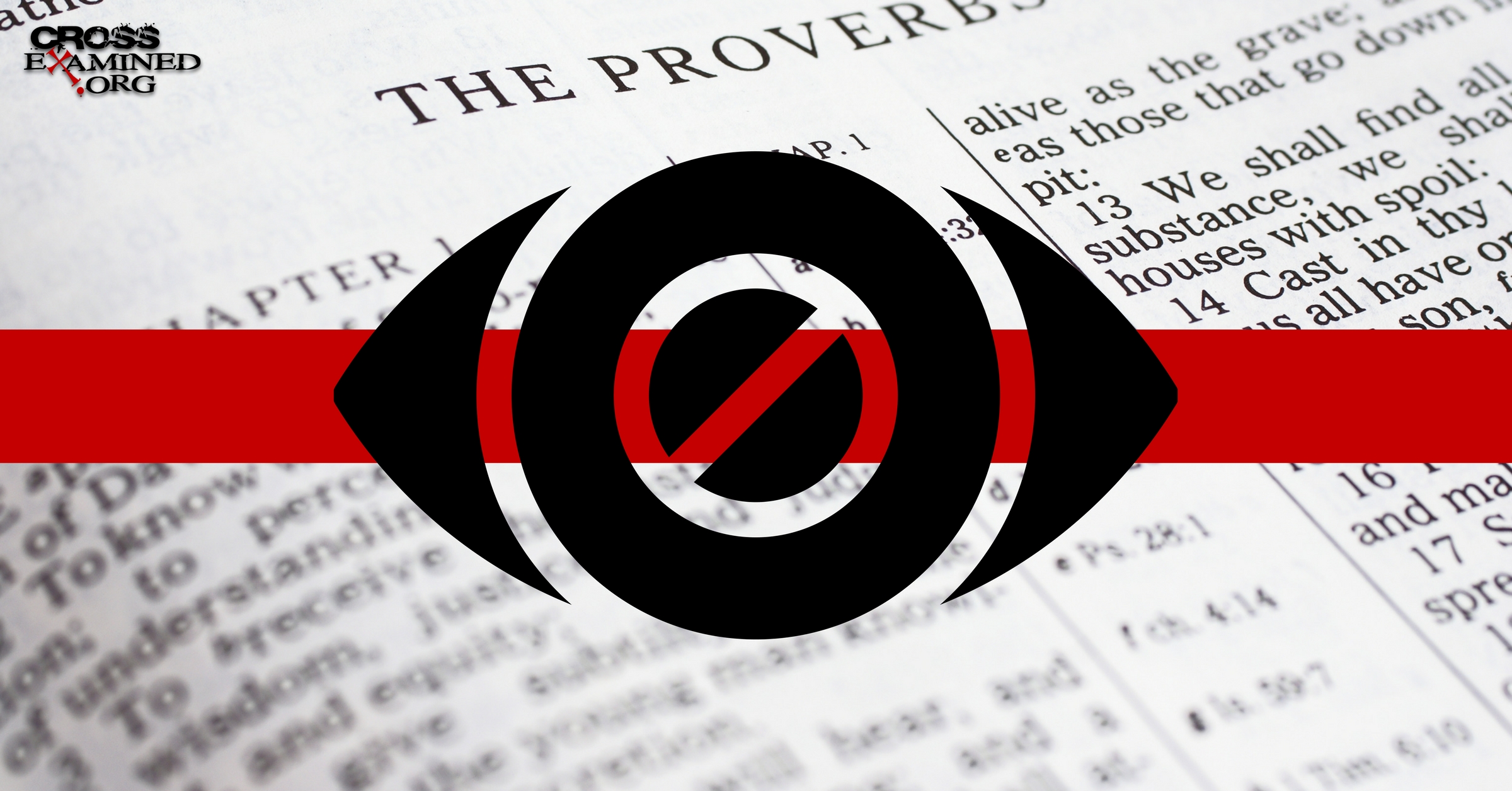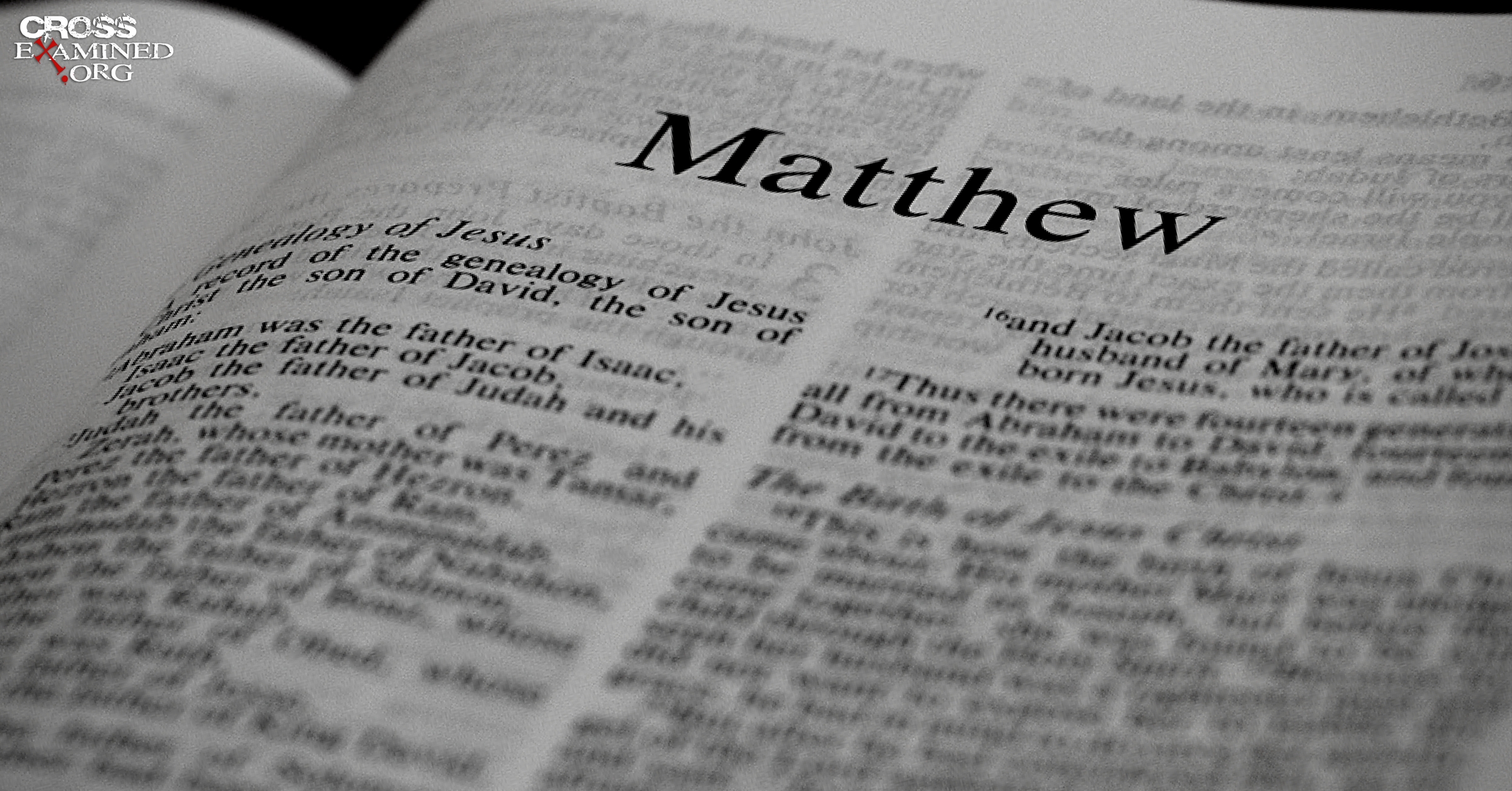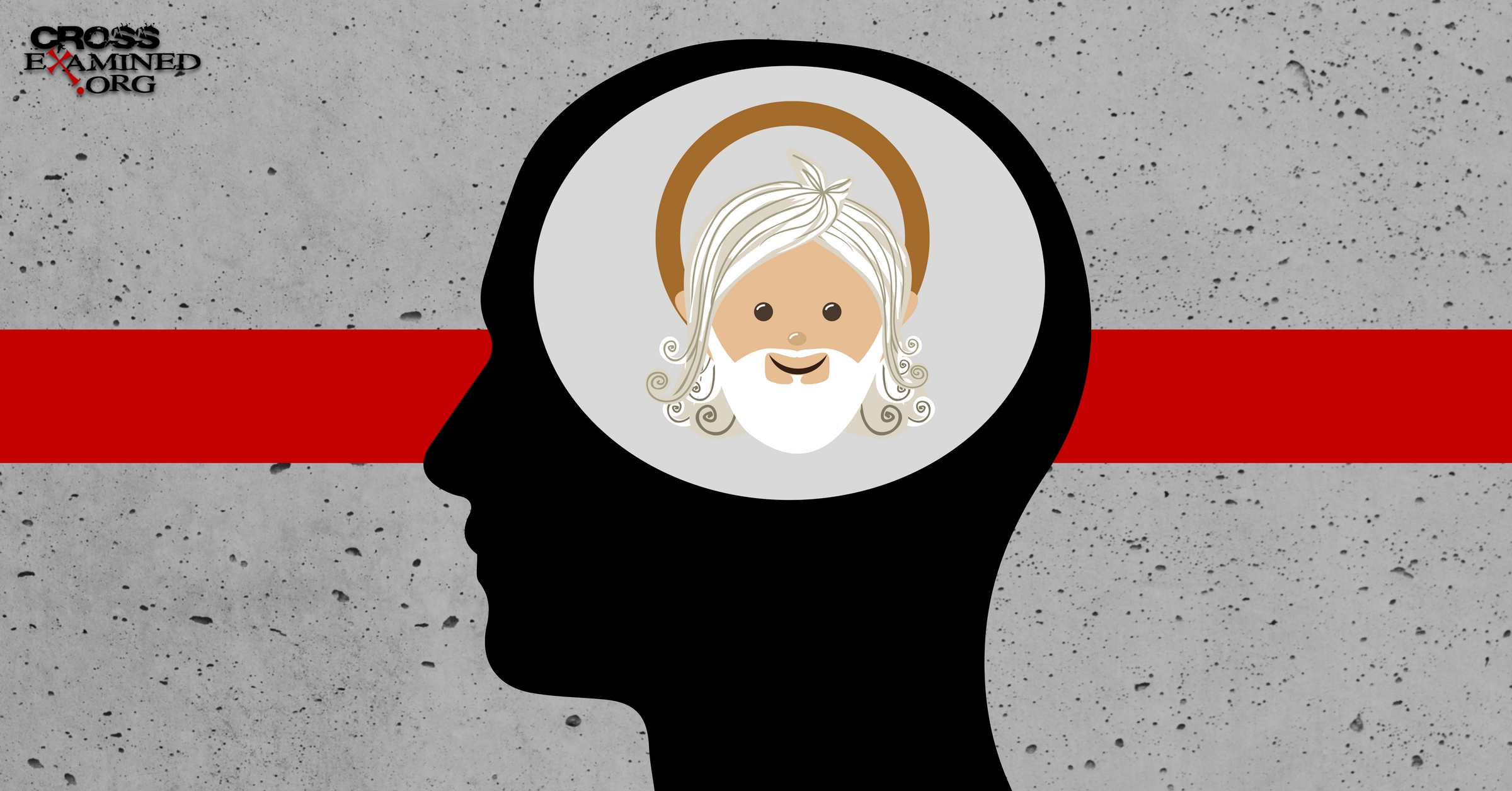Biblical Faith VS. Blind Faith
By Evan Minton
Many Christians when asked by unbelievers why they should believe anything The Bible says, the most common response is “Just have faith!”. And this “just have faith” line is pretty much the answer to every single objection one could possibly raise against the Christian.
Far too often people have turned away because of intellectual doubts that plague them. “If God is all loving and all powerful, why does He let so much suffering go on in the world?” “How could a loving God send people to an eternal Hell?” “How do I know Yahweh is the one true God instead of these thousands of other gods in these other religions that contradict Christianity? How do I know The Bible is true and not The Koran or the Hindu Scriptures?” And when a Christian or a pastor responds with “Just have faith” that translates in the mind of the unbeliever as “in order to be a Christian, you need to commit intellectual suicide.” This blind faith approach is so, so, so very unbiblical. Many places in The Bible command us to tell others WHY Christianity is true.
“Always be ready to give an answer to anyone who asks you to give a reason for the hope that you have, but do so with gentleness and respect.” – 1 Peter 3:15
“We demolish arguments and every pretension that sets itself up against the knowledge of God, and we take captive every thought to make it obedient to Christ.” – 2 Corinthians 10:5
In Jude 1:3, Jude urges his readers to DEFEND the faith (that’s what we call “Christian Apologetics”).
In Phillipians 1:16, Paul says that he was appointed to DEFEND the good news (i.e do Christian Apologetics).
“Live wisely among those who are not believers, and make the most of every opportunity. Let your conversation be gracious and attractive so that you will have the right response for everyone.” – Colossians 4:5-6
In 2 Corinthians 12:12 Paul says he gave the Corinthians PROOF that he was indeed an apostle from God because he performed many signs and wonders when he was with them. If God really wanted us to have blind faith, why would Paul give evidence for his credibility?
In 2 Corinthians 13:3 Paul says he is willing to offer the Corinthians PROOF that Christ speaks through him. Whoa, whoa, whoa, whoa whoa! Hold the phone, Paul! Paul, buddy! Don’t you know that if you offer the Corinthians proof that Christ speaks through you that they won’t have legitimate faith? Why would you deprive them they opportunity of having faith, Paul? Maybe faith isn’t what people think it is.
Objection: If you need evidence, you don’t have faith.
This is an objection often proposed by Christians (as well as atheists) who think that the word “faith” means to believe something without any reason to and/or even to believe something in the face of reasons to not believe it. This distortion of the meaning of the word “faith” has had very bad consequences on the church because it makes a person think that Christianity requires you to be an undiscerning airhead who doesn’t like reason.
Here is a Bible verse that gives an example of a person placing their faith in God in spite of having evidence for His existence. I tell ya, reading The Bible is like going into a spiritual gold mine and mining all the good stuff you find. BUT you gotta dig for it. Usually, I’m not looking for stuff like this, I just happen to stumble across it while reading through the verses. I found this one night when reading through Exodus. I think it does a good job of arguing against Christians who think that apologetics is wrong because you’re supposed to have blind, undiscerning belief.
“When the Israelites saw the mighty power that The Lord had unleashed against the Egyptians, they were filled with awe before Him. THEY PUT THEIR FAITH IN HIM and His servant Moses.” – Exodus 14:31
Clearly, the Israelites had evidence that God existed and was helping them escape Egypt and yet the text says they put their faith in Him anyway (for a little while at least. we all know they lost faith a bunch of times after this). They ESPECIALLY had evidence that MOSES existed and the text says they placed their faith in him as well. So given this piece of scriptural evidence, we know that a Christian can still base his belief THAT Christianity is true on the basis of evidence and still be able to have faith in God. You see, faith means the same thing as the word “trust”. Or as I’ve said before “Faith is when someone is holding you over a ledge and knowing in your heart that not only will they not let you fall, they’ll pull you up to safety”. You know that the person holding onto you exists. You have very powerful evidence that that person exists, yet all the evidence in the world is not going to make you trust that that person will help save your life. This is the real definition of the word “faith”.
I like using an analogy. Let’s say you discovered you had heart disease, and need a risky surgery. You have sufficient resources, so you research doctors, anesthesiologists, etc. until you have the best team possible assembled. You now have a group of people that you believe will give you the best chance of survival. Even though you have researched extensively, you still show your faith in this team when you allow yourself to be put under. Faith does not mean not researching and exploring the truth. Jesus even says as much when he tells us to love God with our heart, soul, *MIND* and strength.
http://bible.cc/exodus/14-31.htm <– Here you can look at other translations of Exodus 14:31 to see all the different words that are used other than “faith”. The NLT uses “faith”, the NIV used “trust”, the KJV uses “believed” that is; they believed IN God and His promises even though they had just witnessed good evidence THAT He existed and was helping them. This is the difference between belief THAT God exists, THAT Jesus rose from the dead and belief IN His character and His promises to you.
We are never told to have a blind faith. Paul commended those in Berea for checking the Scriptures daily to see if what he was telling them was so. Jesus showed Himself alive to make sure those believed on Him, especially Thomas (John 20:28)
Paul also said to “Test everything, hold onto the good.” – 1 Thessalonians 5:21
1 Thessalonians 5:21 seems to be telling us to have just the exact opposite of blind faith.
Objection: “Without faith, it is impossible to please God, because anyone who comes to him must believe that he exists and that he rewards those who earnestly” – Hebrews 11:6
I agree with this. Without faith, it is impossible to please God. But then again, it’s impossible to please ANYONE without faith. It is not possible to have a good relationship with any human being without faith. What is faith? Remember, the word “faith” is synonymous with “trust”. If you’re constantly distrusting God, you’re not going to have a very good relationship with Him just as you wouldn’t have a very good relationship with your wife/husband if you were always distrusting her/him. If you’re constantly suspecting your wife of cheating on you, I “suspect” that it’s not going to be very long before she hands you the divorce papers telling you “I can’t live with someone who distrusts me so severely”. Although sometimes that kind of suspicion is warranted.
I walk by faith, not by sight. This doesn’t mean I believe God exists without any evidence or reason. It means I trust in Him even when I don’t know what He’s up to. Sometimes our circumstances can have deceitful appearances. Sometimes it looks like God has abandoned us when He really hasn’t. Sometimes it looks like God won’t keep His promises. Sometimes we think our suffering has no good purpose for it. It is in times like these that we have to have faith in (i.e to place our TRUST in) God. That His plans are for ours or someone else’s ultimate good.
Having evidence for God’s existence does not mean you’re not walking by faith. Faith is placing one’s trust in a person. Just because you have EVIDENCE for that person’s existence does not mean you don’t trust them. Moses had PLENTY of evidence for God’s existence, but He still had to trust that God was going to lead Him and the Jews where He said they were going to. Many times it looked like Yahweh was leading them on a wild goose chase, but Moses continued to have FAITH in the God which he had plenty of proof existed. Although many of the people did lose faith. They got impatient and started worshipping false idols, and constantly complained.
Objection: Do Apologists forget the work of The Holy Spirit?
Anyone who does apologetics knows the Holy Spirit has to play an integral part of the entire process. As Ergun Caner says, “It is impossible to be effective in apologetics without the work of the Spirit in both the apologist and the hearer.” (2) No mature apologist forgets that the Bible stresses that humans are blinded by sin. Therefore, sin has damaging consequences on the knowing process (Is. 6:9-10; Zech. 7:11-12; Matt. 13:10-13; 2 Cor. 4:4). How people respond to God’s revelation depends on several factors such as his/her personal history (both past and present). People can be hardened towards God; sin certainly dampens an individual’s ability to being receptive to God’s invitation to them. The Holy Spirit works through apologetics just as He works through preaching.
Objection: Shouldn’t we just preach the gospel?
This is true. By all means, “Preach the Gospel!” But guess what? What do you do when you try to open the Bible and use it with someone who doesn’t think the Bible is an authoritative or inspired book? This happens all the time to Christians. And did you know Muslims and other people think their holy book is just as inspired and authoritative as the Bible? The Hindus think their scriptures are inspired. The Buddhists think their holy scriptures are inspired. If you keep trying to quote the Bible, you would be “begging the question.”
“Begging the question” is a form of logical fallacy in which a statement or claim is assumed to be true without evidence other than the statement or claim itself. When one begs the question, the initial assumption of a statement is treated as already proven without any logic to show why the statement is true in the first place. In some cases, you may be able to go quote the Bible to many people without any objections, like when you’re trying to witness to Mormons and Jehova’s Witnesses. If you’re witnessing to Jews, you can show them all the messianic prophesies and how Jesus fulfilled all of the prophesies. But in other cases (like when witnessing to atheists and agnostics), you would need to show the individual the Bible is a reliable historical document before trying to use it as an authoritative text in these types of conversations.
Avoiding Apologetics can have dire consequences.
Christianity is under a severe attack in this day and age. In fact, I’ve never seen the Christian faith under attack more than I have in the 21st century. “The New Atheist” movement has set a goal to eliminate religious belief from the face of the Earth. High School teachers and College professors endorse Darwinian evolution and try to convince your kids that a Creator was not needed for advanced life to come into being.
Christian philosopher William Lane Craig concurs. He said “In high school and college Christian teenagers are intellectually assaulted with every manner of non-Christian worldview coupled with an overwhelming relativism. If parents are not intellectually engaged with their faith and do not have sound arguments for Christian theism and good answers to their children’s questions, then we are in real danger of losing our youth. It’s no longer enough to simply teach our children Bible stories; they need doctrine and apologetics. It’s hard to understand how people today can risk parenthood without having studied apologetics.”
If Jesus wants us to have blind faith, then why did He have to fulfill so many ancient prophesies?
If God required us to have blind faith, then why did Jesus have to fulfill so many prophesies to PROVE to the Jews that He was the true messiah? Why couldn’t Jesus just come onto the scene and say “Hey, I’m the Messiah, follow me!” Maybe because so many other people were claiming to be the Messiah at the time period and they were NOT the Messiah. The Jews needed the ability to tell truth from falsehood. The Jews needed the ability to tell the difference between the TRUE messiah and a phony. Blind Faith can’t give you that. God gave the Jews a test for the real Messiah to take and if He was able to get a perfect score, then their conclusion would be that He was and is the Messiah. Lee Strobel calls this “The Fingerprint Evidence” in his book “The Case For Christ”. Jesus had to fulfill each and every one of the messianic prophecies. If He did, then that proved He was the genuine article.
Blind Faith can actually be dangerous!
Blind Faith can actually be dangerous. How are you going to “beware of false prophets” like Jesus said if you don’t exercise some discernment? Back in ancient Judaism, the way to tell if a prophet was truly from God was if he gave evidence that he came from God. How’s that? Well, if his prophecies came true then he was truly from The Lord but if his prophecies were false then everyone knew he was a false prophet and they had him stoned. 1 John 4:1 says “Dear friends, do not believe every spirit, but test the spirits to see whether they are from God because many false prophets have gone out into the world.” Yet another verse telling us that blind faith is wrong. This verse is telling us that we should “test the spirits” to see if they give evidence that they are indeed from God.
NOTEWORTHY QUOTES:
“I do not feel obliged to believe that same God who endowed us with sense, reason, and intellect had intended for us to forgo their use.” – Galileo Galilei“As I speak around the country, I often encounter devoted, committed Christians who are hesitant to embrace an evidential faith. In many Christian circles, faith that requires evidential support is seen as weak and inferior. For many, blind faith (a faith that simply trusts without question) is the truest, most sincere, and most valuable form of faith that we can offer God. Yet Jesus seemed to have a high regard for evidence. In John 14:11, He told those watching Him to examine ‘the evidence of miracles’ (NIV) if they did not believe what He said about His identity. Even after the resurrection, Jesus stayed with His disciples for an additional forty days and provided them with ‘many convincing proofs’ that He was resurrected and was who He claimed to be (Acts 1:2-3 NIV). Jesus understood the role and value of evidence and the importance of developing an evidential faith. It’s time for all of us, as Christians, to develop a similarly reasonable faith’.” —J. Warner Wallace
“The “I just take Christianity on (blind) faith” attitude can’t be the right approach. It leaves the Bible without defense, yet Peter directs us to make a defense for the hope that is in us. Also, the biblical word for faith, pistis, doesn’t mean wishing. It means active trust. And trust cannot be conjured up or manufactured. It must be earned. You can’t exercise the kind of faith the Bible has in mind unless you’re reasonably sure that some particular things are true. In fact, I suggest you completely ban the phrase “leap of faith” from your vocabulary. Biblical faith is based on knowledge, not wishing or blind leaps. Knowledge builds confidence and confidence leads to trust. The kind of faith God is interested in is not wishing. It’s trust based on knowing, a sure confidence grounded in evidence.’ – Greg Koukl
“Any and every other belief you hold, about anything whatsoever, if it is to be taken seriously, if it is to be of any value or worth anyone’s consideration, it must have in its favor more than your emotions, personal history or external circumstantial factors. It must have reasons.” —Clint Roberts (from the article, Believing for No Reason)
“Question with boldness. Question even if the very existence of God; because, if there be one, he must more approve of the homage of reason, than that of blind-folded fear.” – Thomas Jefferson
“Evan Minton is a Christian Apologist and blogger at Cerebral Faith (www.cerebralfaith.blogspot.com). He is the author of “Inference To The One True God” and “A Hellacious Doctrine”. He has engaged in several debates which can be viewed on Cerebral Faith’s “My Debates” section. Mr. Minton lives in South Carolina, USA.”
Original Blog Source: http://bit.ly/2mzdohl












Leave a Reply
Want to join the discussion?Feel free to contribute!